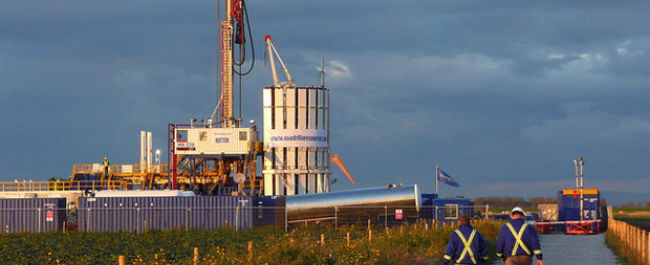Fear of Fracking: earthquakes linked to shale gas exploration cause house prices to fall

This research examines the change in house prices following the release of drilling licenses in 2008.
About the research
Shale gas has become a major new source of energy in countries across the globe. While its important role in energy supply is well recognized, there has been increasing public concern over risks associated with shale gas extraction by hydraulic fracturing (‘fracking’).
This research assessed whether fears about the impacts of shale gas extraction are reflected in house prices in England and Wales. Although commercial shale gas development has not yet taken place in the U.K., exploration licenses have been offered since 2008 and many exploration wells have been drilled. Our findings suggest that this licensing and exploration had minimal impact on house prices. However, two highly publicised minor earthquakes linked to exploratory fracking near Blackpool in 2011 led to a 3 - 4% reduction in house prices nearby. These findings suggest that fear of fracking-induced seismic activity has a significant impact on the housing market.
Note: Commercial shale gas exploration has not yet begun in the U.K., so our estimated effects are based on consumers’ expectations.
Image by: thespeaker.co/fracking-future-shale-gas-uk/ (CC BY 2.0)
Policy implications
- House prices are reduced by fracking-induced seismic activity, even though the magnitudes of the earthquakes are too small to cause structural damage. The implication is that there are ‘psychological costs’ associated with fracking, which should be compensated for.
- Compensation payments should reflect the impact of shale gas operations on property prices.
- More formal regulation of drilling companies may be required, to replace the voluntary compensation payments to communities.
- Persistently decreasing house prices in the affected area suggests a rising public awareness of the potential risk of fracking.
- In the absence of a policy mechanism to compensate local residents and businesses, land value and house prices are expected to fall due to the ‘social costs’ of commercial shale gas development (air and water pollution, increased road congestion and noise/light pollution).
Key findings
The Department of Energy and Climate Change (DECC) maintains that shale gas operations—like other oil and gas exploration over the past half-century—should not affect real estate values. However, our research reveals negative effects on house prices.
Shale gas development has led to rising concerns about social costs in the form of air and water pollution, increased road congestion, noise and light pollution. These costs might be expected to reduce local land value and house prices – costs that are typically borne by nearby land owners, residents and businesses, but not by the drilling company.
Seismic activity is a major concern for home buyers, and the potential risk of earthquakes is priced into property values accordingly. Two earthquakes caused by fracking near Blackpool in 2011 led to a 3 - 4% fall in house prices in the surrounding area. This equates to a cumulative cost of £111-169 million for houses sold in this area. Since fear of fracking also devalues land and property that is not yet on the market, we consider this estimate to be a lower bound.
Appropriate compensatory payments would be well in excess of the voluntary payments to which operators are currently committed. The recommended compensation commitments for drilling companies are voluntary and also relatively modest.
Further information
Gibbons, S., S. Heblich, E. Lho, and C. Timmins (2016). Fear of Fracking. The impact of the shale gas exploration on house prices in Britain
Muehlenbachs, L., E. Spiller and C. Timmins (2015). The Housing Market Impacts of Shale Gas Development. American Economic Review. 105(12):3633-3659.
Policy Briefing 22: 2016
Fear of Fracking: earthquakes linked to shale gas exploration cause house prices (PDF, 153kB)
Contact the researchers
Steve Gibbons, Professor of Economic Geography, London School of Economics
s.gibbons@lse.ac.uk
Stephan Heblich, Reader in Economics, University of Bristol
stephan.heblich@bristol.ac.uk
Esther Lho, Masters Degree Student in Economics, Duke University, Durham
esther.lho@duke.edu
Christopher Timmins, Professor of Economics, Duke University, Durham
christopher.timmins@duke.edu
Authors
Professor Steve Gibbons, Spatial Economic Research Centre, London School of Economics; Dr Stephan Heblich, University of Bristol; Esther Lho, Duke University; Professor Christopher Timmins, Duke University, National Bureau of Economic Research